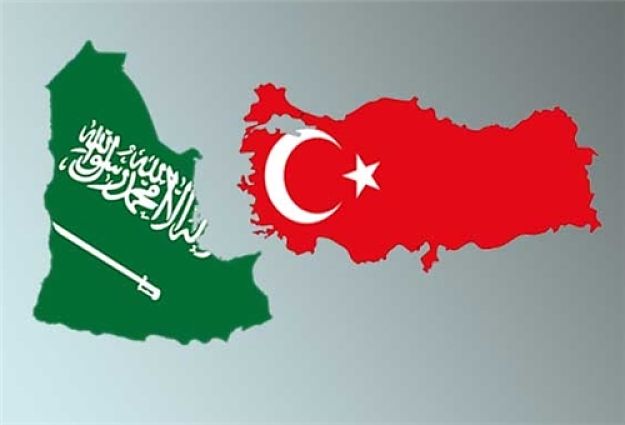Joe Biden’s victory in the U.S. presidential election seems to be the first positive result for the Muslim world. However, not because it should bring any benefit to them, but rather because it may force the degenerating parts of it to unite in the face of possible common challenges.
It should be noted that Biden promised to make efforts to remove Recep Tayyip Erdogan from power. On the other hand, with Donald Trump leaving the White House, the golden age of US-Saudi relations will surely come to an end, especially Washington’s unconditional support for Crown Prince Mohammed bin Salman, which may be replaced by a cooling of relations due to human rights violations.
Against this backdrop, there have been some signs of a thaw in relations between Turkey and Saudi Arabia, which have been at odds in recent years. In particular, the Saudi Foreign Minister, Faisal bin Farhan Al Saud, denied information about an unofficial boycott of Turkish products by the Kingdom and unexpectedly described the relations between the two countries as «good and beautiful».
Subsequently, the King of Saudi Arabia, Salman bin Abdulaziz, and the President of Turkey, Recep Tayyip Erdogan, had a friendly telephone conversation. In a cautious sign that this friendliness might go beyond words, the Saudi authorities released the internationally renowned Yemeni scholar Dr. Abdul Majid Zindani and allowed him to travel to Turkey. The doctor had previously been under house arrest as part of Riyadh’s campaign against Islamic scholars accused of sympathizing with the Muslim Brotherhood, which implies support for Qatar and Turkey.
Meanwhile, Saudi Arabia’s closest ally in the fight against the Muslim Brotherhood, the United Arab Emirates, shows no signs of stopping. While the Muslim Brotherhood was previously recognized as a terrorist organization only by the authorities of that country, the UAE’s Council of Scholars recently issued a fatwa to that effect.
With this course of events, it is unlikely that Saudi Arabia will be able to sit on two chairs, i.e. maintain its alliance with the UAE and normalize relations with Turkey. And if the issue of the Muslim Brotherhood as an organization could be avoided in relations between Saudi Arabia and Turkey, it will not be possible to do so in relations with Qatar.
The Saudis will also have to make a decision on other foreign policy issues in which they have so far acted together with the UAE on an anti-Turkish platform: support for Haftar in Libya, support for Greece in its conflict with Turkey, and so on.
All in all, it can be said without exaggeration that the main criterion for Saudi Arabia’s foreign policy choices will be the face of its domestic policy. After all, all of Saudi Arabia’s hostile actions against Turkey were initiated by the young Crown Prince Mohammed bin Salman (MBS), acting in tandem with his Emirati colleague Mohammed bin Zayed. Therefore, it is impossible to imagine that relations between Turkey and Saudi Arabia can be truly normalized if MBS remains in power.
If MBS is pushed aside by his more experienced father and Saudi Arabia reconciles with Turkey, it could mean not only the end of MBS’s political career, but also the beginning of the end of the adventurist policies imposed by the UAE’s Muhammad bin Zayed.
There is a chance for this development because Joe Biden has promised to return to the US nuclear deal with Iran, from which Trump withdrew, and to put harsh pressure on Tehran. This weakening of Iran at the time freed the hands of the UAE and Saudi Arabia from the need for active confrontation with Iran and allowed them to shift their focus to strengthening Turkey and its ally Qatar, which was encouraged by Jared Kushner, Trump’s son-in-law.
Therefore, if the Americans now turn their anger into mercy towards Iran and their mercy into anger towards Saudi Arabia, the Sunni countries of the region may once again find themselves in a position where they have to unite their efforts to counter the Shiite expansionism supported by Washington. However, this is unlikely to happen without the removal from power in Saudi Arabia and the UAE of those who have unleashed an intra-Sunni hybrid war in recent years.

